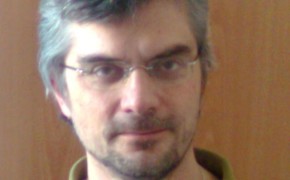The LIFE RE Mida Project developed full-scale technologies for the treatment of low-calorific value landfill gas (LFG) in managed and unmanaged landfills.
LIFE RE Mida enables reduction of greenhouse gases (GHGs) emissions from landfills. The project focused on the treatment of low calorific value LFG for which the combustion is technically impracticable and LFG is often vented without treatment posing risk to human health and to the environment.
LIFE RE Mida have designed and built two innovative biofiltration technologies. The scope was twofold: to biologically oxidase methane and to mitigate odour and NMVOCs emissions. As case studies were chosen Podere Il Pero Landfill (Arezzo, Italy) and Le Fornaci di Monticiano Landfill (Siena, Italy). In the former was built an active biofilter; while, in the second seven passive biofiltration systems (biowindow) were preferred since the active LFG extraction system lacked. A mixture of compost and sand was used as oxidizing layer. The monitoring activities lasted for two years.
The results were spread to the general public through communication, dissemination activities, and networking activities involving both the project partners and stakeholders. A strong collaboration between the Italian Ministry of Environment (MATTM), and the Directorate of Environment (DG-ENV) of European Commission was established to promote the revision of the legislation at national and EU level.
LIFE RE Mida grants an environmentally sound and cost-effective management of closed landfills, also supporting both public authorities and the private sector in complying with European and national regulations
Resources needed
Total budget of 855.600 € of which 513.000 € co-financed by European LIFE Programme
Evidence of success
Thanks to the knowledge gathered through the project the use of bio-oxidation when it is no longer viable to utilise the landfill gas was proposed in the EU Strategy on methane. In addition, thanks to the collaboration with Tuscany Region, the Italian law in d.lgs n.121 allowed the use of biofiltration in landfills with a methane production lower than 0.001 Nm3/m2/h.
Difficulties encountered
Some slightly changes were made concerning the dissemination activities. In detail, the activities were increased, and a dense Agenda of actions was planned to spread the outcomes to a general public and overcome the communications limit of the technical subject.
Potential for learning or transfer
Landfills can be considered significant anthropogenic sources of odours and greenhouse gases. Furthermore, LFG contains more than 200 NMVOCs that may be toxic and have a high nuisance effect.
The technological solution studied in LIFE RE Mida demonstrated a methane oxidation efficiency above 80% if methane load is less than 5 g/m2h, odour concentration lower than 300 UO/m3 and NMVOCs abatement of almost 70%.
In addition, the outcomes contributed to update the current legislation at a national and European level.
Please login to see the expert opinion of this good practice.
Tags: Air, Climate change, Waste








